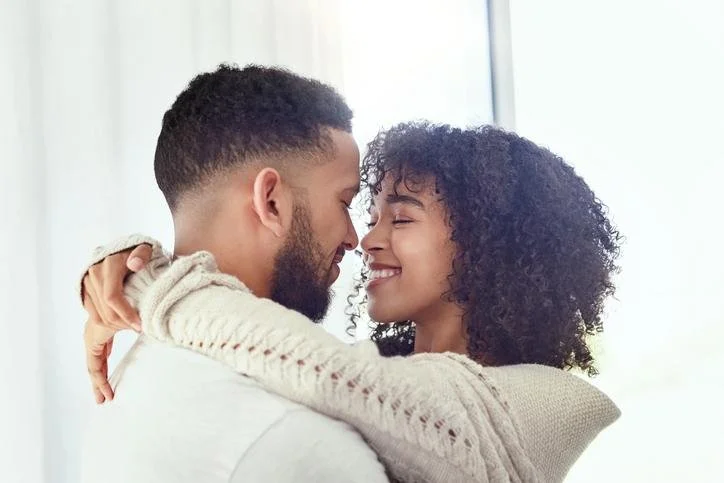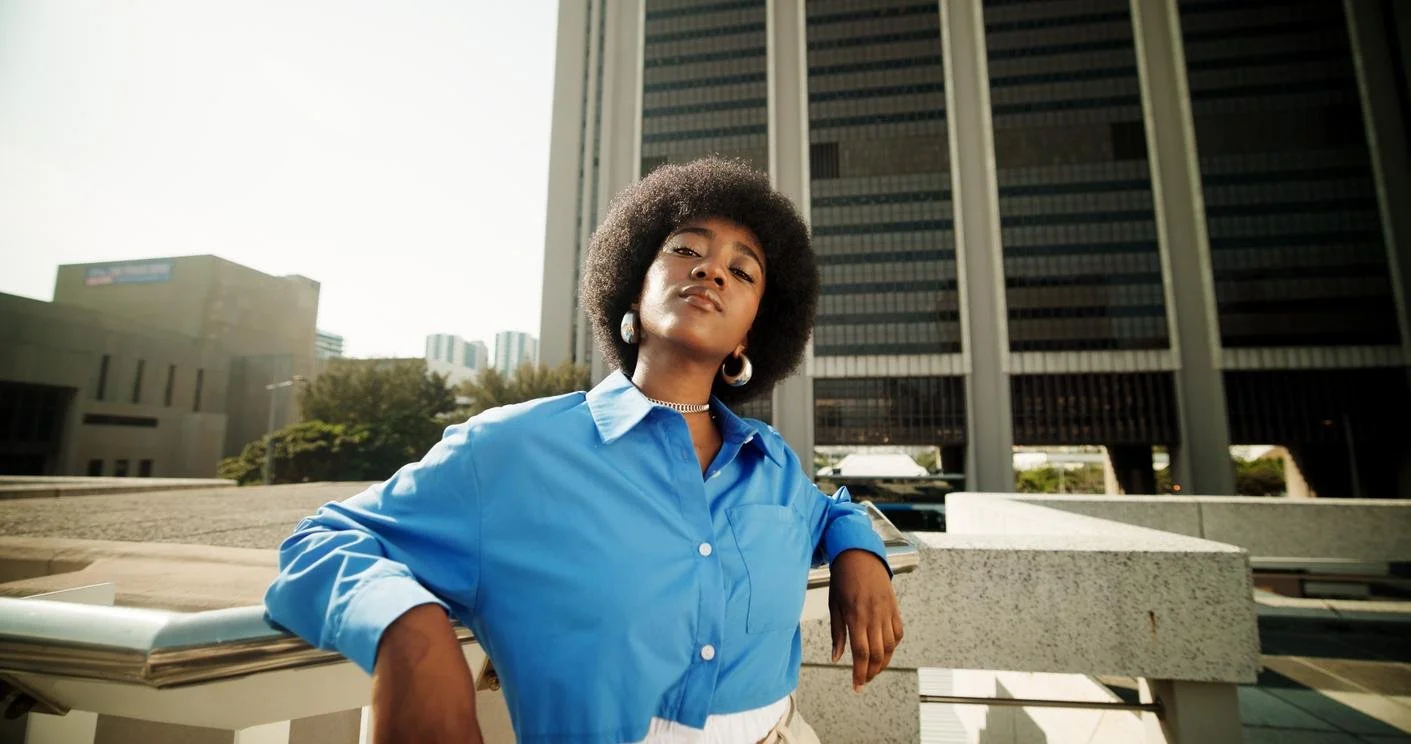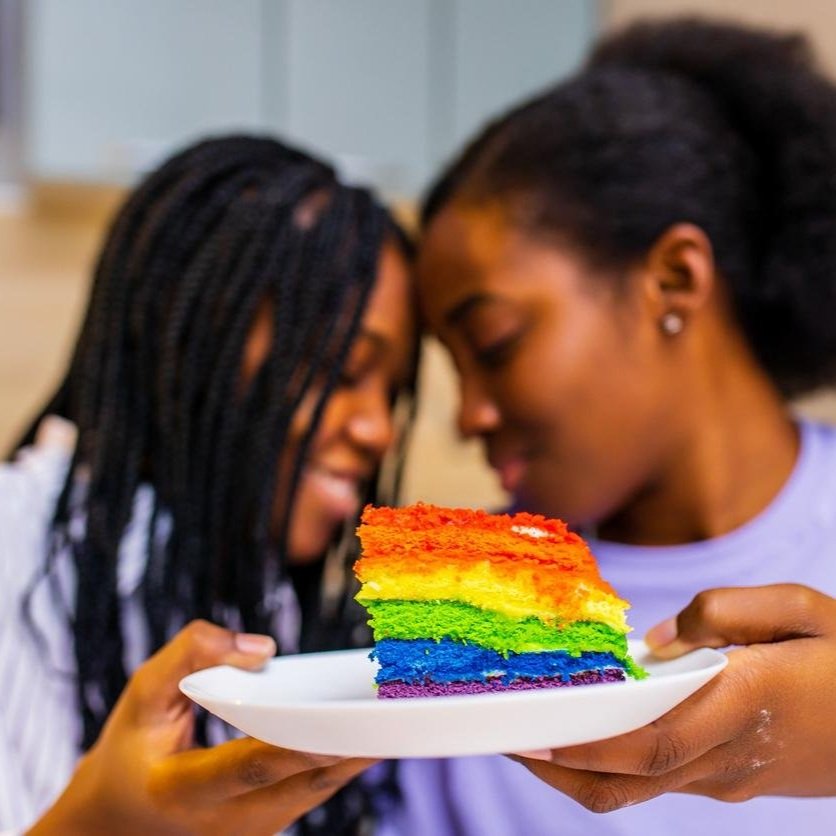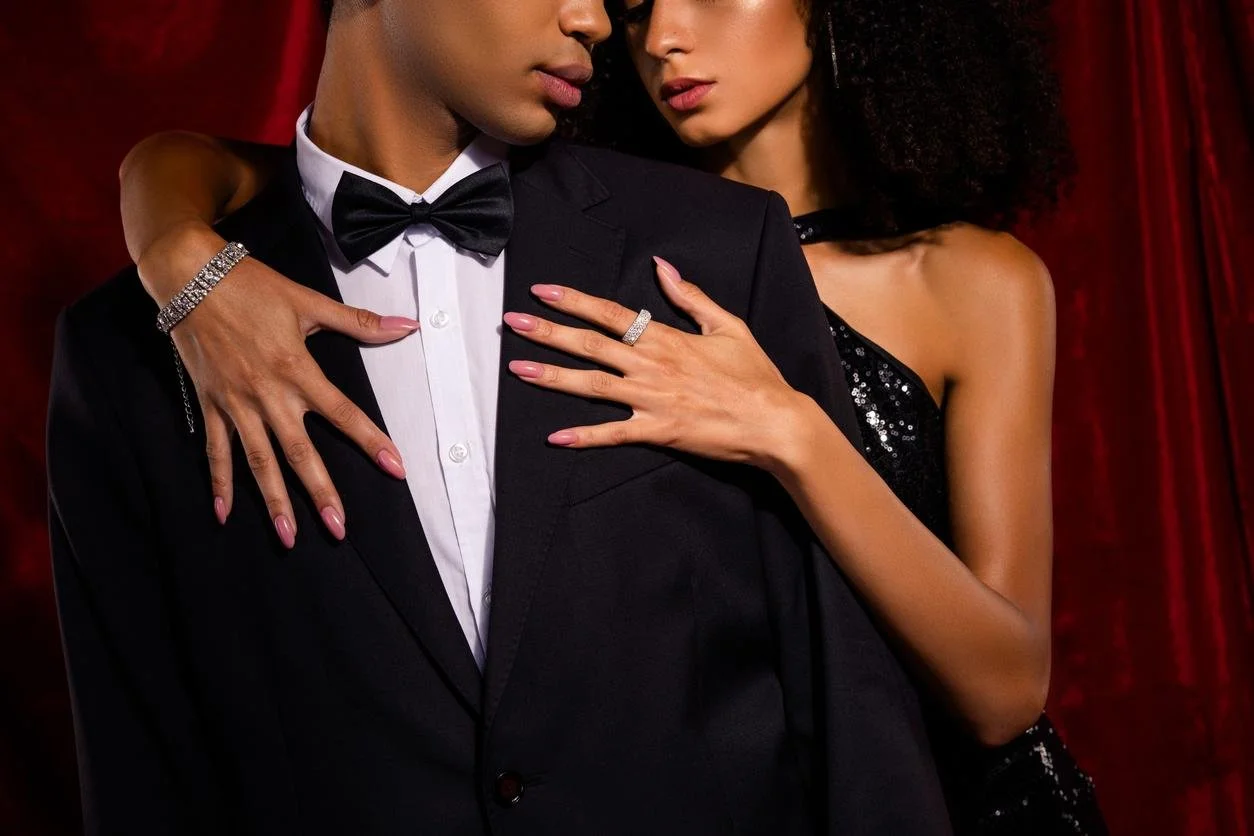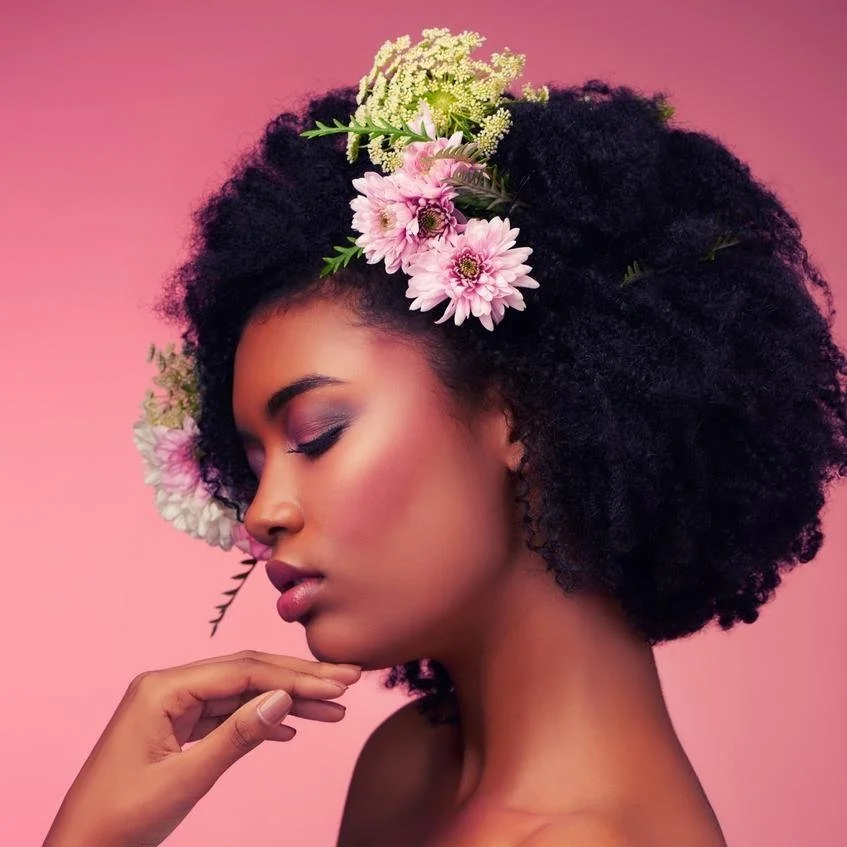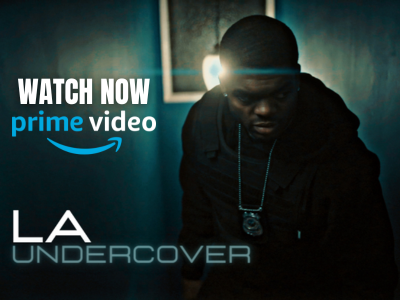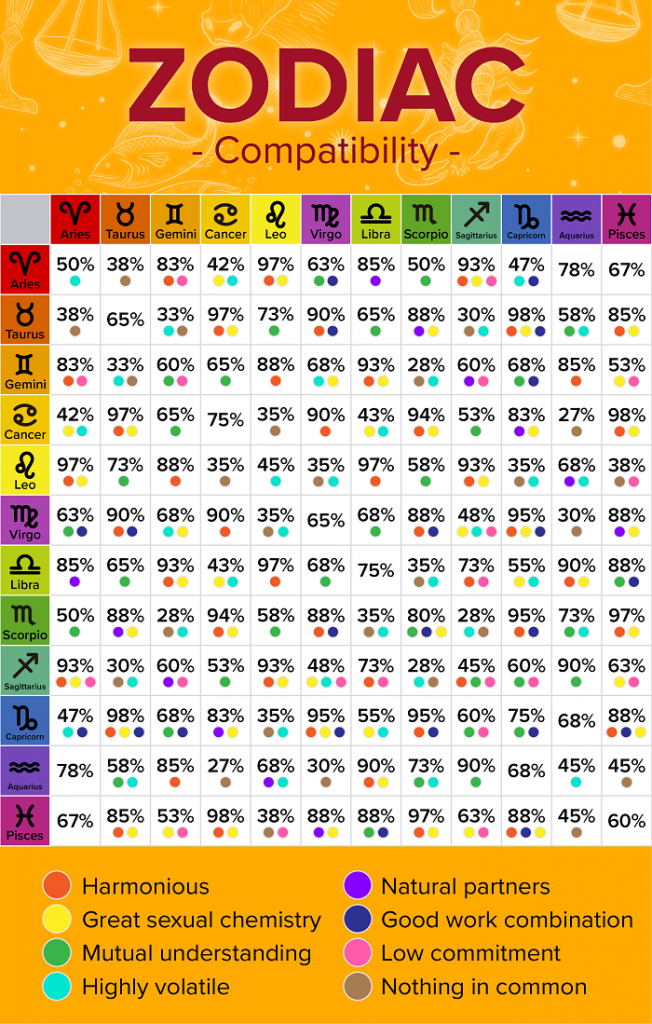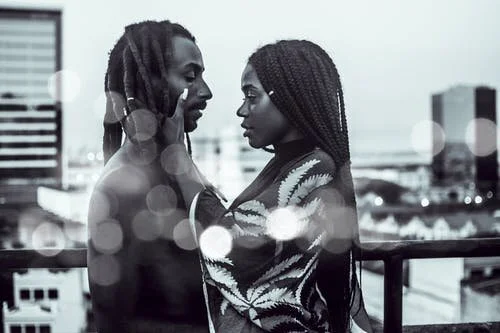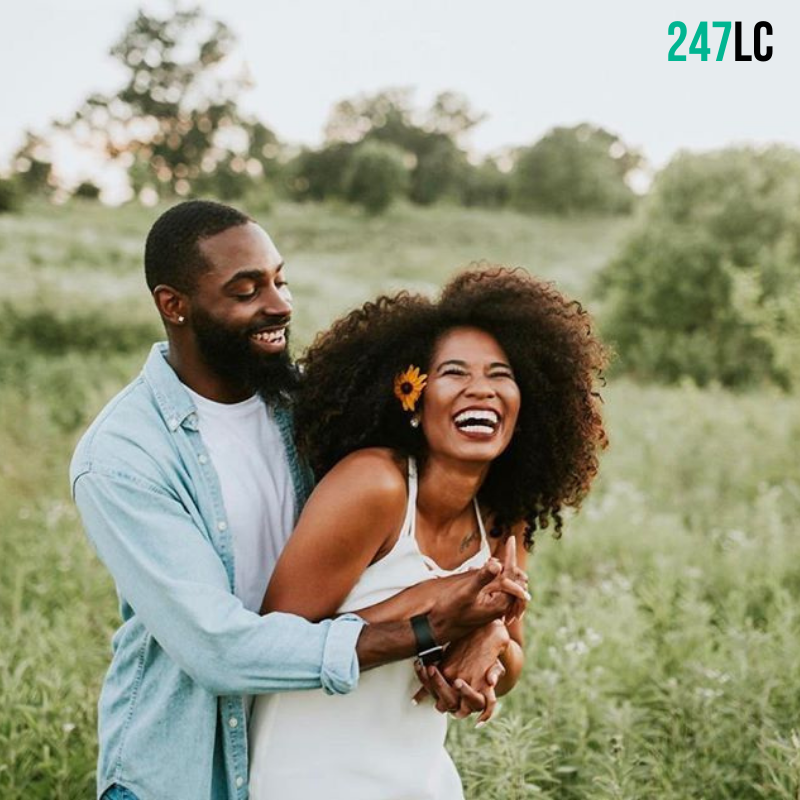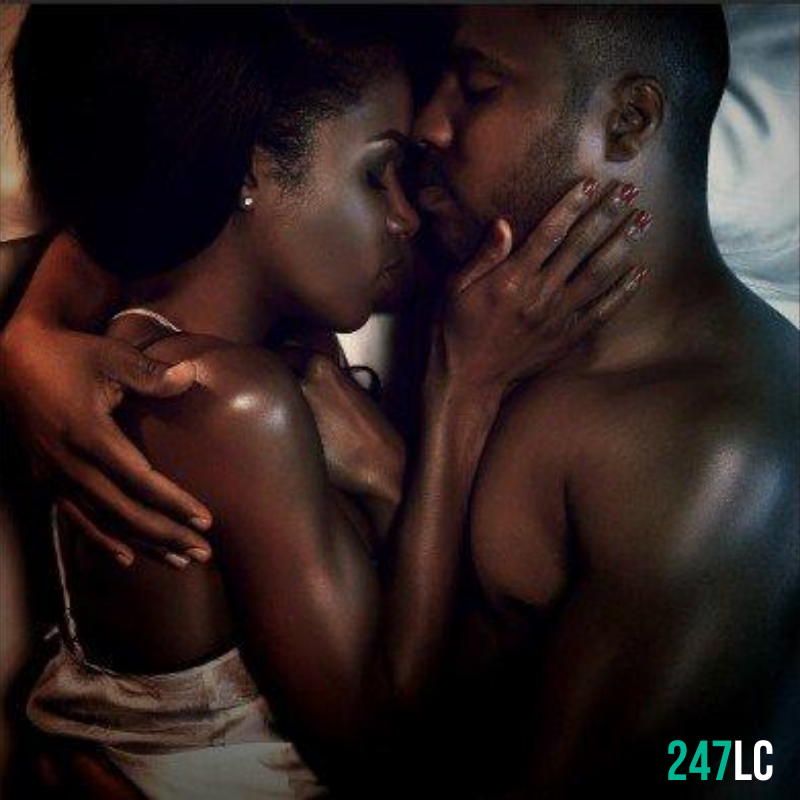The Difference Between Chemistry & Compatibility: What Really Matters in Love
Understanding the difference between chemistry and compatibility in relationships can help you build lasting love by balancing passion with shared values, communication, and long-term stability. We discuss it here!
Photo Credit: LaylaBird via iStockPhoto.com
By: Jamila Gomez
Love is a tricky game. One minute, you’re caught up in a whirlwind romance, feeling butterflies every time they text. The next, you’re side-eyeing them across the room, realizing you don’t actually like the same things, want the same future, or even argue in a way that makes sense. This is where the great debate begins: chemistry vs. compatibility—which one really matters in love?
What is Chemistry?
Chemistry is that instant spark. It’s the energy between two people that makes you feel drawn to them, sometimes without even knowing why. It’s the way they make you laugh, the inside jokes, the effortless conversation, and that deep, unspoken attraction that keeps you coming back for more. Chemistry is what makes a date go from “it was cool” to “I can’t stop thinking about them.”
But here’s the catch: chemistry alone won’t hold a relationship together. It’s like fireworks—beautiful and exciting but burns out quickly if there’s nothing to sustain it.
What is Compatibility?
Compatibility is the long game. It’s the foundation that keeps the house standing when the honeymoon phase fades. Being compatible means you and your partner align in important areas: values, goals, lifestyles, and the way you handle conflict.
Compatibility doesn’t always come with an immediate spark, which is why people sometimes overlook it. But it’s the reason some relationships last while others crash and burn.
Which One Matters More?
Let’s be real—chemistry feels amazing. It makes you giddy, makes your heart race, and gives you that feeling that you’ve found “the one.” But if you’re not compatible, all that excitement will eventually turn into frustration.
Think about it: You could have crazy chemistry with someone, but if they don’t respect your boundaries, don’t want the same type of relationship, or handle stress in a way that doesn’t align with yours, that chemistry won’t save you.
On the flip side, you could meet someone who is highly compatible—they share your values, communicate well, and want the same things—but if there’s no chemistry, the relationship might feel more like a friendship than a romance.
So, What’s the Answer?
Ideally, you want both. Chemistry makes things exciting, but compatibility keeps things stable. The best relationships have a balance of both—passion with a purpose, attraction with alignment.
If you’re caught up in a connection that’s all spark but no substance, ask yourself: Can I build a real future with this person? And if you’re in a relationship that makes sense on paper but lacks excitement, consider: Can we create a deeper connection over time?
At the end of the day, love should feel good and make sense. Don’t settle for just a spark or just stability—aim for a love that gives you both.
YOU MAY ALSO BE INTERESTED IN:
SHARE TO SOCIAL MEDIA
Should We Stay Together for the Kids? Black Family Dilemmas
Explore whether staying together or separating is best for Black families, balancing stability with the impact of toxic relationships on children. We discuss it here!
Photo Credit: Kateryna Onyshchuk via iStockPhoto.com
By: Jamila Gomez
The question of whether parents should stay together for the sake of their children is one that has sparked debate for generations. Within Black families, where historical and societal challenges have shaped family structures, this dilemma becomes even more complex. While stability is crucial for children, staying in an unhealthy or toxic relationship may do more harm than good.
The Importance of Family Stability
Children thrive in environments where they feel safe, loved, and supported. A two-parent household often provides financial stability, emotional security, and access to both parental figures, which can be beneficial for their development. Within the Black community, strong family units have historically served as a foundation for resilience against systemic obstacles such as economic disparities and racial discrimination.
For many, the desire to keep the family together is rooted in the cultural emphasis on unity and perseverance. Parents may feel an obligation to maintain a home where children can witness a partnership, believing that this will provide them with a sense of stability and belonging. Additionally, some fear that separation may perpetuate negative stereotypes surrounding Black families, particularly the challenges of single-parent households.
When Staying Together Becomes Harmful
While the intention to keep a family intact is commendable, staying in a dysfunctional or toxic relationship can have long-term negative effects on children. A household filled with constant conflict, lack of affection, or emotional neglect can create an environment of stress and insecurity. Children who witness frequent arguments, emotional detachment, or even abuse may develop anxiety, depression, or difficulty forming healthy relationships in adulthood.
Moreover, when parents remain in an unhappy relationship, they may unintentionally model unhealthy relationship dynamics. If children grow up seeing love portrayed as conflict-ridden or unfulfilling, they may internalize these patterns in their own future relationships. In this case, separation might actually serve as a healthier alternative, demonstrating that love should not come at the expense of personal well-being.
Finding the Right Balance
The decision to stay together or separate should ultimately prioritize the well-being of both the children and the parents. If parents believe that they can work through their issues through therapy, open communication, or personal growth, then staying together could be a viable option. However, if the relationship is beyond repair and negatively impacts the mental health of everyone involved, a peaceful co-parenting arrangement may be the best choice.
In the end, the most important factor is not whether both parents live under the same roof, but whether the children are raised in a loving, stable, and nurturing environment—wherever that may be.
YOU MAY ALSO BE INTERESTED IN:
SHARE TO SOCIAL MEDIA
Why Taking a Break from Dating Might Be the Best Choice
Taking a break from dating empowers you to rediscover yourself, heal emotionally, and build independence, paving the way for healthier, more fulfilling relationships. We discuss it here!
Photo Credit: Jacob Wackerhausen via iStockPhoto.com
By: Jamila Gomez
In a world where dating apps, social expectations, and romantic pressures dominate, taking a break from dating might seem counterintuitive. However, stepping back from the pursuit of love can actually be one of the healthiest and most beneficial decisions you make for yourself. Whether you’ve experienced a string of unsuccessful relationships, emotional burnout, or simply feel disconnected from yourself, a dating hiatus can provide clarity, healing, and personal growth.
1. Time for Self-Discovery
One of the most significant benefits of taking a break from dating is the opportunity to reconnect with yourself. When actively seeking a partner, it’s easy to lose sight of personal goals, interests, and values. A pause allows you to reflect on what you truly want in a relationship, assess past patterns, and redefine your priorities. This period of self-discovery can lead to stronger self-awareness and confidence, making future relationships healthier and more fulfilling.
2. Emotional Healing and Clarity
Breakups, disappointments, and dating fatigue can take a toll on mental and emotional well-being. Jumping from one relationship to another without properly processing emotions can lead to unresolved baggage. Taking a break gives you the necessary space to heal, understand past experiences, and break unhealthy relationship cycles. It helps you approach love from a place of wholeness rather than from loneliness or desperation.
3. Stronger Sense of Independence
Relying on romantic relationships for happiness or validation can be a slippery slope. Stepping away from dating encourages self-sufficiency and the realization that fulfillment comes from within. Learning to enjoy your own company, pursuing personal passions, and building strong platonic relationships can significantly enhance your quality of life. When you do decide to date again, you’ll enter relationships with a stronger foundation of self-worth and independence.
4. Avoiding Dating Burnout
Constantly navigating the ups and downs of dating can be exhausting. Swiping on apps, going on multiple dates, and facing repeated disappointments can lead to emotional exhaustion and cynicism. Taking a break provides a much-needed mental reset, allowing you to return to dating with fresh enthusiasm, patience, and a healthier mindset.
5. Attracting the Right Partner
When you’re content with yourself and clear on what you want, you naturally attract healthier and more compatible partners. Rushing into relationships out of fear of being alone often leads to settling for less than you deserve. A dating break helps you gain clarity on your standards, ensuring that future relationships are based on mutual compatibility rather than urgency.
Taking a break from dating isn’t about giving up on love—it’s about investing in yourself. When you take time to heal, grow, and rediscover what truly makes you happy, you set the stage for a more fulfilling romantic future. Love will come when the time is right, but until then, prioritize your well-being and enjoy the journey of self-love.
YOU MAY ALSO BE INTERESTED IN:
SHARE TO SOCIAL MEDIA
Representation Matters: The Importance of Black Queer Love Stories
Learn how authentic portrayals of Black queer love in media challenge stereotypes, affirm identities, and foster inclusivity for a more empathetic society. We discuss it here!
Photo Credit: URII KRASILNIKOV via iStockPhoto.com
By: Jamila Gomez
Representation in media shapes how individuals see themselves and how society perceives different communities. When we talk about the importance of Black queer love stories, we are addressing a critical gap in storytelling that has historically erased, stereotyped, or misrepresented these identities. The intersectionality of Blackness and queerness is rich with narratives of love, resilience, and joy that deserve to be seen and celebrated.
For too long, mainstream media has focused on a narrow portrayal of both Black and queer experiences, often reducing them to struggles, trauma, or background characters in someone else’s story. While it is crucial to acknowledge challenges such as homophobia and racism, it is equally vital to highlight the beauty and depth of Black queer love. Stories that center on Black queer relationships validate the existence of these individuals, providing visibility that combats the false notion that such love is rare or nonexistent.
Black queer love stories are essential because they offer a reflection of reality for those who rarely see themselves depicted authentically. When people see characters who share their identities and experiences falling in love, forming families, and finding happiness, it fosters a sense of belonging. It tells them that their love is just as meaningful and worthy as any other. This representation also challenges the dominant narratives that often frame Black love through struggle and queerness as something to be hidden or fought against.
Beyond personal affirmation, these stories help broaden societal understanding. Media has a profound influence on shaping perceptions, and inclusive storytelling can lead to greater empathy and acceptance. When Black queer love is portrayed with care, depth, and complexity, it challenges prejudices and expands cultural conversations about what love can look like.
Recent years have seen progress with films, books, and television shows showcasing Black queer love in a more nuanced and celebratory way. Works like Barry Jenkins’ Moonlight, the TV show Pose, and books by authors like Jacqueline Woodson and Kacen Callender contribute to a growing canon that uplifts these stories. However, there is still much work to be done. More narratives are needed, spanning various genres and perspectives, to ensure that Black queer love is not a rarity in media but a normalized and valued part of storytelling.
Representation matters because it affirms existence, reshapes narratives, and fosters inclusivity. Black queer love stories are not just important; they are necessary for a more just and truthful world.
YOU MAY ALSO BE INTERESTED IN:
SHARE TO SOCIAL MEDIA
How Past Relationships Shape Our Future Love Life
Learn how past relationships shape your future love life by teaching valuable lessons, healing emotional wounds, and building emotional resilience that helps you set healthy boundaries and form fulfilling connections. We discuss it here!
Photo Credit: Jacob Wackerhausen via iStockPhoto.com
By: Jamila Gomez
Love is a journey filled with lessons, emotions, and personal growth. Every relationship we experience leaves an imprint on us, shaping how we perceive love, trust, and commitment. Whether it ended in heartbreak or mutual understanding, our past relationships influence how we approach new romantic connections. From emotional baggage to valuable lessons, here’s how our past relationships mold our future love life.
1. Learning from Mistakes
One of the most significant ways past relationships shape us is by teaching us what works and what doesn’t. When a relationship ends, we reflect on what went wrong—was it poor communication, mismatched values, or unmet expectations? These insights help us make better choices in the future, ensuring we don’t repeat the same mistakes.
For instance, if someone has experienced a relationship where they felt unheard, they may prioritize finding a partner who values open and honest communication. This self-awareness allows for healthier and more fulfilling connections.
2. Emotional Baggage and Healing
Not all relationships end on good terms, and sometimes, they leave emotional scars. Betrayal, heartbreak, and toxic dynamics can create trust issues, fear of vulnerability, or low self-esteem. If these wounds are left unhealed, they can affect future relationships, causing unnecessary insecurities or defensive behaviors.
However, when people take time to heal and reflect on their emotional wounds, they enter new relationships with a clearer mind and an open heart. Acknowledging and working through past pain leads to emotional maturity and prevents repeating unhealthy patterns.
3. Understanding Personal Needs and Boundaries
Every relationship provides an opportunity to understand what we truly need from a partner. Some people may realize they need emotional support, while others may prioritize independence. Past relationships help clarify these needs, making it easier to set healthy boundaries in the future.
For example, someone who once felt suffocated in a controlling relationship might recognize the importance of personal space and seek a partner who respects their independence. Recognizing and asserting these boundaries helps create balanced and respectful relationships.
4. Building Emotional Resilience
Breakups and failed relationships, while painful, also build emotional resilience. Overcoming heartbreak teaches people how to cope with disappointment, adapt to change, and emerge stronger. This resilience makes individuals more capable of handling challenges in future relationships, fostering patience, understanding, and maturity.
Past relationships are not just chapters of our love life but stepping stones toward personal growth and healthier future relationships. They teach us valuable lessons, help us heal, and shape our understanding of love. By embracing these experiences, we can move forward with confidence, ready to build meaningful and fulfilling romantic connections.
YOU MAY ALSO BE INTERESTED IN:
SHARE TO SOCIAL MEDIA
Are Relationship Standards Too High or Just Right?
Balancing relationship standards requires distinguishing between essential values and unrealistic expectations to foster healthy, fulfilling connections. We discuss it here!
Photo Credit: Larysa Vdovychenko via iStockPhoto.com
By: Jamila Gomez
In the discourse surrounding modern relationships, one prevalent question is whether the standards we hold for our partners and relationships are excessively high or appropriately ambitious. To dissect this query, it’s crucial to understand the multifaceted nature of what “standards” mean in the context of romantic relationships.
Firstly, standards in relationships often encapsulate expectations around communication, emotional support, mutual respect, and shared values. These benchmarks are not just whimsical desires but foundational elements that foster a healthy, sustainable relationship. Advocates for maintaining high standards argue that they are vital in ensuring that one is treated with dignity and respect, which are non-negotiable for any substantial relationship.
On the other hand, there’s a growing concern that some individuals may harbor unrealistic expectations fueled by external influences such as media portrayals of romance, social media comparisons, and peer pressures. These exaggerated ideals can include expecting a partner to fulfill every need, from being a best friend to an emotional healer, or to adhere to idealized physical or financial criteria. When such elevated expectations are set, they can create a chasm between reality and fantasy, potentially leading to disappointment and relationship breakdowns.
The key, then, to balancing relationship standards lies in distinguishing between what is essential for a healthy relationship and what is an idealized expectation. Communication, respect, trust, and affection are core needs that should not be compromised and are reasonable standards to uphold. Conversely, expecting a partner to look or behave perfectly at all times, or to intuitively understand every need without communication, are examples of potentially unattainable standards that can strain a relationship.
Moreover, it is beneficial to introspect whether one’s relationship standards are self-imposed barriers to intimacy. Personal insecurities and past traumas can often manifest as high walls of expectation, which serve more to protect than to partner. Being mindful and addressing these personal issues can help in moderating one’s expectations to a realistic level.
In addition, it is crucial for individuals to communicate their standards clearly and early in the relationship. This transparency not only helps in finding a compatible partner but also reduces misunderstandings later on. Mutual understanding and compromise are also key; a relationship is, after all, a partnership that thrives on give and take.
While it is vital to maintain certain standards in a relationship to ensure it is healthy and fulfilling, there is also a need to be mindful of setting realistic expectations that foster rather than hinder intimacy. Balancing these standards might require introspection, communication, and sometimes, compromise. Thus, relationship standards are not necessarily too high by default but should be just right to ensure both partners feel valued, respected, and loved.
YOU MAY ALSO BE INTERESTED IN:
SHARE TO SOCIAL MEDIA
Are “High-Value Men” and “High-Value Women” Real?
The concept of "high-value men" and "high-value women" has gained traction in dating and success discussions, but are these labels meaningful or just social constructs? We discuss it here!
Photo Credit: hillwoman2 via iStockPhoto.com
By: Jamila Gomez
In recent years, the concept of “high-value men” and “high-value women” has gained popularity in discussions about relationships, success, and social status. But are these labels real, or are they just another passing trend in the ever-evolving world of dating and personal development?
Defining “High-Value” Individuals
At its core, the term “high-value” generally refers to individuals who possess qualities that make them desirable partners or influential members of society. These qualities often include financial success, social status, emotional intelligence, confidence, physical attractiveness, and strong leadership skills. However, the exact criteria can vary depending on cultural, social, and individual perspectives.
For men, the label often emphasizes wealth, ambition, physical fitness, and the ability to lead and provide. For women, it typically includes beauty, femininity, social skills, and nurturing qualities. These gender-specific expectations raise important questions about whether these labels are objective realities or socially constructed ideals.
The Subjectivity of Value
One major argument against the idea of “high-value” individuals is that value is inherently subjective. What one person finds attractive and valuable in a partner may not be the same for someone else. A wealthy businessman might prioritize intelligence and ambition in a partner, while another might seek kindness and emotional support. Likewise, not everyone defines success purely in financial or social terms—some prioritize emotional depth, creativity, or shared values.
The idea of a universally “high-value” man or woman assumes that there is a single, agreed-upon standard of what makes someone desirable. In reality, value is context-dependent. A person’s worth is often judged differently in professional, social, and romantic settings.
The Influence of Social Media and Pop Culture
The rise of social media has played a significant role in shaping and amplifying these concepts. Influencers and dating coaches frequently discuss strategies to become “high-value,” often emphasizing wealth accumulation, luxury lifestyles, and social dominance. While self-improvement is a positive goal, these portrayals can create unrealistic expectations and foster superficial judgments.
Moreover, pop culture has long reinforced the idea that status, looks, and wealth determine a person’s value. Movies, music, and celebrity culture promote aspirational lifestyles, leading many to equate success with materialism rather than personal growth or character.
The Reality of Self-Worth
While certain traits can make a person more desirable in specific contexts, reducing human worth to a checklist of attributes is overly simplistic. True value comes from authenticity, personal development, and meaningful connections rather than rigid societal standards. Instead of striving to fit into predefined categories, individuals should focus on becoming the best versions of themselves—whatever that may look like.
So, are “high-value men” and “high-value women” real? The answer is both yes and no. While certain traits are commonly admired, real value ultimately depends on individual perspectives and priorities.
YOU MAY ALSO BE INTERESTED IN:
SHARE TO SOCIAL MEDIA
The Rise of “Soft Life” Dating Among Black Women
The soft life dating movement is redefining relationships for Black women by prioritizing emotional security, financial stability, and self-care over struggle and sacrifice. We discuss it here!
Photo Credit: Tassil via iStockPhoto.com
By: Jamila Gomez
In recent years, the concept of the “soft life” has gained traction among Black women, especially in the realm of dating and relationships. Originating from social media, the soft life movement promotes a lifestyle centered on ease, luxury, self-care, and emotional well-being, steering away from struggle and hardship. This shift in perspective is particularly significant as it challenges the long-standing expectation that Black women must be resilient and endure difficult relationships as a badge of honor.
What is “Soft Life” Dating?
Soft life dating is an approach to romance that prioritizes emotional security, financial stability, and peace over stress, struggle, and sacrifice. It is about choosing partners who align with one’s values, offer genuine care, and contribute to a balanced, fulfilling relationship. For many Black women, this means actively rejecting relationships that drain their energy or require them to take on burdens beyond their emotional or financial capacity.
This movement is not about being passive or materialistic but rather about embracing standards that foster joy, love, and reciprocity. It encourages Black women to invest in relationships where they are cherished, respected, and supported rather than settling for emotionally unavailable partners or toxic dynamics.
Why is Soft Life Dating Gaining Popularity?
Several cultural and societal factors contribute to the rise of soft life dating among Black women:
1. Rejection of Struggle Love – For generations, Black women have been encouraged to be strong, endure hardships, and “build” their partners. Soft life dating challenges this narrative by promoting relationships that do not require suffering as proof of love.
2. Financial and Emotional Independence – As more Black women achieve career success and financial stability, they are no longer dependent on relationships for survival. This autonomy allows them to be selective about their partners, prioritizing emotional fulfillment over necessity.
3. Self-Care and Mental Health Awareness – With the increasing focus on mental health, many Black women are setting boundaries that protect their peace. Soft life dating aligns with this shift, emphasizing relationships that contribute to well-being rather than emotional exhaustion.
4. Social Media Influence – Platforms like TikTok and Instagram have amplified the soft life movement, with influencers showcasing relationships that embody ease, mutual respect, and luxury. This visibility has inspired many Black women to reassess their dating standards and embrace a more fulfilling approach.
The Impact of Soft Life Dating
The rise of soft life dating is empowering Black women to prioritize their happiness and redefine their romantic expectations. It fosters healthier relationships built on mutual respect and eliminates the societal pressure to settle for less. By embracing this mindset, Black women are not only enhancing their personal lives but also setting a new standard for love—one rooted in joy, peace, and genuine connection.
YOU MAY ALSO BE INTERESTED IN:
SHARE TO SOCIAL MEDIA
It Could All Be So Simple: The Overcomplication of Love and Relationships
Simplifying love by overcoming unrealistic expectations, over analysis, and fear of vulnerability fosters healthier and more fulfilling relationships. We discuss it here!
Photo Credit: ljubaphoto via iStockPhoto.com
By: Jamila Gomez
Love and relationships are often seen as the pinnacle of human connection, yet we have a tendency to overcomplicate them. Despite love’s inherent simplicity, societal expectations, personal insecurities, and modern dynamics often create unnecessary complexity, turning what should be a source of joy into a maze of confusion. Understanding how we overcomplicate love is the first step toward simplifying it and fostering healthier, more fulfilling connections.
1. Unrealistic Expectations
One of the most common ways we overcomplicate relationships is by holding onto unrealistic expectations. Influenced by fairy tales, movies, and social media, we often envision love as a flawless, sweeping romance. This creates pressure to maintain a picture-perfect relationship, leaving little room for imperfection. In reality, love is messy and imperfect. It thrives on mutual effort, patience, and understanding—not grandiose gestures or unattainable ideals.
2. Overanalyzing Feelings and Actions
In the age of constant communication and hyper-awareness, overanalyzing has become a default behavior in relationships. We dissect every text message, interpret tone, and read between the lines of seemingly simple interactions. This mental gymnastics can create unnecessary tension and misunderstandings. Instead of enjoying the present moment, we get caught up in “what-if” scenarios and hidden meanings, complicating what could be straightforward communication.
3. Fear of Vulnerability
Love requires openness and vulnerability, but fear of getting hurt often leads us to build walls around our emotions. We engage in mind games, avoid direct conversations, or hide our true feelings to protect ourselves. Ironically, these behaviors create barriers to genuine connection and trust, leaving both partners feeling confused and disconnected. Embracing vulnerability may feel risky, but it is essential for authentic relationships.
4. Seeking Validation
Another way we complicate love is by seeking validation from our partners rather than focusing on self-love. When we rely on someone else to define our worth, relationships can become transactional, with love being conditional upon meeting specific needs or expectations. This creates a cycle of insecurity and dissatisfaction. True love flourishes when both partners feel whole and secure within themselves.
5. Ignoring the Power of Simplicity
At its core, love is about mutual respect, care, and commitment. However, we often underestimate the power of simplicity—spending quality time together, expressing gratitude, and being present. These small, meaningful actions are far more valuable than over-the-top gestures or attempts to over-intellectualize the relationship.
By letting go of unnecessary complexities, we can rediscover the true essence of love: connection, trust, and shared joy. When we simplify love and relationships, we make space for growth, intimacy, and happiness—proving that the best things in life are often the simplest.
YOU MAY ALSO BE INTERESTED IN:
SHARE TO SOCIAL MEDIA
There's Something Special About Black Love and It Should Be Celebrated
There's something very special about Black love and the bond that comes with it! We discuss it here!
By: Jordan King
While February is proudly Black History Month, we also observe a special day for the celebration of love in all forms and fashions. When it comes to speaking about love within the Black community at large, this topic is so vast and at times controversial. Everyone (rightfully so) has different and conflicting perspectives. However, all of our people deserve and are entitled to love; especially when we have done that inner work to heal and be the best version of a mate for your significant other!
To be able to love freely and unapologetically is a divine right. Love should not be complicated, however, naturally things happen. Now, for some reason when it comes to Black love; it’s not just complicated but complex. The presence of Blacks in America spans over 400 years yet somehow we have managed to maintain our kind. Traditionally, media has struggled with how to properly represent affection, care, and love when it comes to colored people. Often times our love is seen as too dramatic, toxic or situation based. Now of course that’s not to say that America misrepresents other cultures too.
Admittedly; while my parents are divorced, I have been grateful to witness other examples of healthy relationships and marriages. Also it’s very important to acknowledge the valleys in various stages of relationships, as not every day will be easy or disagreements will arise. On the other side, people can eventually grow apart and lead cordial lives. Nonetheless, the goal of our generation should be to not only redefine the definition of love in modern times; yet also maintain the essence of what love has always been!
The illusion of options will unfortunately make it hard for us to be able to properly find their person. In the past, people were relegated to shorter radiuses to find their lifelong partners. However, this also can be a positive! For instance, two people that were meant for each other but maybe distance would’ve prevented them from ever meeting; could manifest a connection through the tools of technology.
While I do believe in the concept of “love is love”, as well as the idea that anybody can find their person within anyone else; there’s just something so unique about the love affair between two Black people, as well as the care and intimacy that they are able to show due to the combined history and lineage. Honestly, it is through the strife that Black people have experienced throughout our collective history, that we have been able to transmute that pain into an overall deep love and care. A force so mighty that when applied properly can be miraculous, as well as even generation binding.
Some, and hopefully more of you will get the chance to experience family reunions with true elders. Those that have the matriarchs & patriarchs that can truly pass on a long history, as well as being able to experience these people up close. One day, those elders (hopefully) will be us!
To be Black, is an honor; A birthright. The ability to find and maintain love while Black, can be challenging; however, ultimately so rewarding. There’s a very unique importance and aspect of love that can always be revealed and nurtured between two people from similar cultures.
YOU MAY ALSO BE INTERESTED IN:
SHARE TO SOCIAL MEDIA
Recovering From a Breakup: 5 Ways to Heal Through a Broken Heart
Whether we like it or not, romantic heartbreak is an inevitable experience for us all. Here are 5 ways to help you heal through a broken heart!
By: Kathleen Santos
They ended the relationship. Just like that, it’s over. No solid explanation given. Not reasonable enough for you, anyway. All you know is that they chose not to stay.
While mutual breakups tend to be more predictable, some of the most damaging types of romantic heartbreaks are the ones that you don’t anticipate. It’s not as easy to get in front of infidelity, ghosting, or rejection when you don’t see any of it coming.
Whether we like it or not, romantic heartbreak is an inevitable experience for us all. Not everyone will care to admit it, but the tailspin that usually follows can be pretty brutal. Naturally, we are emotional beings, which makes our unique human experience so beautiful and sometimes equally devastating.
Dealing with the ocean of emotions where anger or resentment, sadness or loneliness, anxiety or helplessness are all happening at once can be overwhelming, and at times, all-consuming. And so, what else is there to do, but sink into all of that dense energy? Deeply confused about how you got here, unsure about how long all this will last and praying you’ll be able to pull yourself through it sooner rather than later.
Here Are 5 Ways to Heal Through Heartbreak
1. Feel All The Feels
This first step may be more difficult for some than others, but learning how to effectively apply it is critical. When you’re sad, be sad. If you’re angry, sit in it. Do your best to feel your way through your intense frustrations or any anguish. These emotions are ‘energy in motion’ and this dense energy is what is causing your body to hold onto all of this tension.
Allowing yourself to feel these emotions is how you move this energy through your body to be released, so that your healing can begin. Heartbreak will absolutely manifest itself physically by way of losing sleep or weight loss or gain, in the form of headaches or body aches, and even a literal aching heart.
So, go ahead and cry, sleep when you feel like it, cry again, remember to drink some water and have a bite to eat, and cry some more. It may be at a gradual pace, but the release is working. Just don’t suppress these emotions otherwise you risk it bubbling right up again later. Go easy on yourself and just let it all come up and let go.
2. Let Your Loved Ones In
Some may say that the beginning stages of ‘feeling all the feels’ is best done in isolation, but at some point, everyone needs a shoulder to lean on. Show yourself some self-compassion by reaching out to someone you trust for support. If they call, pick up the phone. If they show up at your door, let them in. Graciously accept their offer to drop off some food or sit quietly with you to binge some TV for a few hours. However they show up for you, be grateful for their support in your healing.
3. Take Time to Reflect
Ms. Maya Angelou captures the sentiment of this critical step perfectly, “When you know better, you do better.” No one comes into our life by accident and everyone we encounter in life either brings us love or lessons. Experiencing an unexpected heartbreak may very well include a little of both and it’s our job to figure out what that relationship taught us about ourselves. This may mean having to relive some of those memories and emotions you already worked through, but, it’s part of the hard work.
While it may be justified (and easier) to place all the blame onto the other person, if you’re going to get any real value from this exercise on reflection, you’ll really need to dig deep to figure out what this experience revealed about you? Journaling is especially effective in uncovering the obvious and hidden wisdom here.
As long as you can keep it real, be open to hold yourself accountable for your part with what went wrong, then you open yourself up to developing greater discernment and ensure you’re not repeating behaviors in the future that don’t serve you. So, get your journal out - get comfortable with being uncomfortable, and stay open to discovering the layers of truths that this past relationship offers.
4. Love and Honor Yourself
A healthy dose of self-love will be a vital leap forward to getting to the other side of this. What is it that makes you feel good-mind, body and soul? Now this may look different today than it did a year ago or even five years ago. So, be excited, get creative and playful as you explore what makes you happy. This could look like:
-Creating Healthy Boundaries
Cultivating a Positive Mindset
Daily Affirmations
More Exercise
Upgrading To a Healthier Diet
Getting in Sync With Your Natural Sleep Cycle
Practicing Mindfulness
Reading a Good Book
Taking a Trip
Volunteering in Your Community
Cleaning Out Your Closet
Taking Your Dog to the Park
Scheduling a Spa Day
Or Even Some Retail Therapy
There are no wrong answers as long as it promotes your healing and it feels good. When we can get ourselves closer to a place of bliss and embrace who we are (flaws and all) and where we are in our life journey, we allow more space for gratitude and we end up positioning ourselves to receive even more blessings. And you deserve all of it!
5. Move Forward, Empowered
There is no denying that our emotions are powerful and can overpower us at times, especially after an unexpected and painful heartbreak. We know now, that this was never about them. This was always about you and your personal growth, so that you can better align to the good that you truly deserve. Move forward knowing that you have the ability to endure heartbreak and take control of your life, as long as we choose to respond.
In other words, moving through it is a choice - it’s not a matter of ‘can I’ get through it, it’s a matter of ‘when I’ get through it. Rejection is your protection and what’s for you, will never pass you by. Take a few moments when you get up in the morning, and before you go to sleep at night, to be still, and allow that to be your mantra. Allow it to reverberate through your body and take root in your DNA. Embody that self-love and it is promised that it will be reflected back to you! You got this!
YOU MAY ALSO BE INTERESTED IN:
SHARE TO SOCIAL MEDIA
Toxic Relationships: 10 Signs You Are Becoming the Toxic One
Although we don't always want to admit it, sometimes when a relationship is sour, it's because we're the problem. Here are 10 signs that you are becoming the toxic one in your relationships!
By: Jamila Gomez
No relationship is perfect. Perfection in any aspect is not a real thing anyway. But I can guarantee that every relationship you’ve ever been in – whether it’s romantic family, platonic, or working – has endured some sort of strain at some point. Although we don't always want to admit it, much less are able to recognize it, sometimes when relationship is sour, it's because we're the problem. Or at least half of the problem. Don’t believe me? Here are 10 signs that you are becoming the toxic one in your relationships. See if you recognize yourself in any of it.
1) Lack of Responsibility
You don't take responsibility for your part in things falling apart or going wrong. You always blame others or you always choose to remain in situations that allow you to avoid accountability.
2) You Always Have to be Right
You only choose to talk to people who agree with you. You never admit your mistakes or when you are wrong about something. Remember, it’s alright to adjust your thoughts and opinions when presented with no (to you) information. But you need to be open to understanding that you ain’t always got the answers. Nobody likes a know-it-all.
3) You Harbor Resentment
You can't/won't let things go. Either resolve the issues or learn to let it go.
4) You're a Control Freak
It has to be your way or no way. You always have to be at the center of everything. Or you always have to take the reins in any given situation so that it will go your way.
5) You Lack Communication Skills
No one is a mind-reader and you can't expect people to know how you feel if you purposely say nothing. And when you choose to stay silent and not having your needs met, you don’t have the right to be upset with the other person. Closed mouths don’t get fed.
6) You Can't Be Trusted
You are sneaky and dishonest. Going behind someone’s back and doing things you know would hurt them is very toxic. And you can’t use the excuse of “I didn’t tell you because I didn’t want to hurt you” when you get caught in the act. If you don’t want to hurt someone, don’t do the thing that you’d feel the need to be dishonest about later on in the first place.
7) You're Always in Competition With Others
You're obsessed with one-upping or being better than others rather than just being the best version of you that you can be. Or you constantly compare yourself to others you think are doing better than you. The grass is always greener on the other side – until you see the other side. Then you realize your lawn was fine.
8) You Become Unwell
You neglect your mental and physical health. When you don’t take care of yourself, you become no good for other people. Sometimes this is unintentional, and an underlying issue may be at the helm. But if you’re purposely letting yourself go, it can hurt the relationships you’ve built.
9) Your Relationships Are One-Sided
You're always taking/receiving but never at least offering to give/do (when you know you're able). It’s one thing to genuinely need help, but if you’re constantly taking just to take, you’re toxic.
10) You're Emotionally Manipulative
You make people feel guilty for not being your perception of perfection. No one is obligated to live up to your expectation, especially when you don’t even do it.
I hope that helps.
YOU MAY ALSO BE INTERESTED IN:
SHARE TO SOCIAL MEDIA
When the Bond Breaks: When It’s Time to End a Friendship and How to Do It
Ending friendships is never easy, but some relationships must end in order for us to grow and mature! Here are some tips for recognizing when it’s time to end a friendship and how to do it respectfully!
By: Jamila Gomez
I’ve never been that great at building and maintaining friendships. Growing up, I was a loner. My experiences with Spina Bifida and the different ways the defect showed up in my life in the wrong places at the wrong times often left me feeling like I would never get to the place where I could ever harness real connections because I felt so abnormal.
There are a few people that I have known since childhood who have stuck with me all this time and we’re all pushing 40. And even recently, I have been able to make a few connections that stuck. At least, they stuck for a while.
As I’ve gotten older, my personal definition of friendship has taken on a deeper meaning than it used to. Before, I simply wanted to be around people I had things in common with that I could go out and have fun with. Then I grew more introverted than I am now and it just became a desire for people I had things in common with. Overtime, I began to notice that the adhesive on these bonds was not as strong as I thought it was and these bonds began to break.
The severing would start to take place when real-life situations began to show up in our lives. One friend would begin a new romantic relationship and I was pushed to the side. But when she was bored or her relationships ended, she then had time. But then there would be times when I would feel a little down for whatever reason and just needed someone to talk to but ended up having to deal with it by myself.
Then there is the friend of a different race with whom we can bond over music but can’t talk about the racial divide and what we can do together to try and stop it. It can feel really lonely when you feel like you are the only one among your people who truly cares and I have found myself in this lonely place with her on many occasions.
Things like this may sound trivial, but to me, they were red flags. I needed more out of my friendships than just someone I can go to lunch with or talk about music with. I needed friends I could do life with. Ones I could at least talk about life with. Sure, we can hang out and go places and have fun. That’s part of it. But I needed more than just lunch.
I needed friend with whom I could travel the world with. Friends I could celebrate milestones with. Big events. Triumphs. But also those who’d hold each other down when things get rough. Friends who live by “check on your strong friends”. When I realized what I needed was not what I actually had, it was time to make some changes.
Ending friendships is never easy, especially when it wasn’t easy to obtain them to begin with. It takes quite a bit of introspection and being honest with yourself and what you know you need. And not just what you need, but also what you have to give. Friendships are reciprocal and the friend shouldn’t be the only person doing the giving. You have to give also. But it is important that don’t deprive yourself of the things you need from a friendship. And if you know you’re not being fed the way you would like, perhaps it’s time to reevaluate.
Another thing to be mindful of regarding whether or not a friendship needs to end is if the bond feels stagnant. As we grow as individuals, the friendships we have should evolve and mature as well. If you both are growing but the friendship isn’t, it’s a sign that you are growing in different directions. And it’s okay. Your life isn’t over just because a friendship is. It just means that, that chapter in your life is done and it’s time to start a new one.
The way one goes about ending a friendship is really up to that person. While it’s not the most respectful thing to ghost the person, some may find it better to avoid confrontation, arguments, and mind-changing. Otherwise, perhaps you may want to sit down with the friend to get the concerns off your chest. No need to go into grave detail, but if you need to give a brief telling of why you need to cut ties, at least the other person can have that closure.
Take as much responsibility and accountability as you can. Avoid placing blame on the other person unless they have offended you. If that is the case, let them know of the offense, but still be responsible for your own feelings.
When all is said and done, both of you will need time. It’s okay to mourn and grieve over the end. Make sure you take care of your feelings and emotions during the grieving process. But allow yourself to feel what you need to feel. Chances are it’s going to hurt. Let it hurt, but then let it heal. Remember that you can always build new bonds with new people.
YOU MAY ALSO BE INTERESTED IN:
SHARE TO SOCIAL MEDIA
Moving Forward | It's Time To Grow And Let Go
They say that you can literally feel when you are moving into the next chapter of your life---when you are growing. It’s to move in alignment with what makes you happy and uplifts you!
By: Sydni Hatley
They say that you can literally feel when you are moving into the next chapter of your life---when you are growing. We all love the idea of growth, evolving, and becoming the best version of ourselves, but sometimes growth is hard because it means letting go of certain people, habits, and mentalities that we’ve grown comfortable with but that no longer serve us.
It is called growth because you are moving into the next phase of your life, and not everybody and everything can come with you. Thus enters the concept of “growing pains”, because the process of letting go of the familiar can hurt, but once it is said and done, and you are on the other side, the fruits of that labor will always be worth the release.
When you know it is time to let go of something, (a relationship, a friendship, a job, a certain lifestyle, etc.), everything in your life will seemingly start to point it out. The signs will be everywhere. The concept of severing ties with things that no longer serve where you are going will become apparent, making themselves clearer and clearer each time you avoid this truth.
The purpose of our existence in this life is literally to evolve in mind, body, and spirit. We cannot grow in physicality but remain stuck in the same circumstances that hold our minds and spirits back from maturing as well. Growing pains themselves (which are the actual process of letting go) are a trial to see if you are ready to take the next steps necessary to achieving personal freedom and happiness---but no one can take those steps but you.
A lot of times when it comes to the need to outgrow toxic situations of any kind, there will be many tests to hold you back. For instance, if it is a toxic relationship with a boyfriend or girlfriend, they may see you starting to outgrow them and try to trap or manipulate you into staying. If it is a toxic friend, they may do the same. DO NOT stay out of fear of being alone, or anything else.
Growth and maturation is about strengthening the mind and aligning the mind with your own discernment. Seeing a situation that no longer serves you is the first part, acting on that situation for the betterment of your life is another. You must remain steadfast in your purpose, and trust that you are going further without them than with them.
We always see testimonies about how healthy people are once they began prioritizing their own life and happiness, and we as people long to have that ourselves. The reality is, it takes a lot of work to even get to that space of inner peace and true tranquility. You must identify the things that uplift you vs. drag you down, and that process can be simple if you let it be. Accepting them is the second hardest thing to do. Moving on from them is the first.
The key is to focus on yourself, focus on your journey and how YOU’RE feeling. Try to move in alignment with what makes you happy and uplifts you. Remove anything and anyone from your life that does not. The best thing you can do when it’s time to close a chapter of your life is honor your intuition, know your worth, focus on where you want to go, and don’t look back at the things or people that you know won’t get you there.
YOU MAY ALSO BE INTERESTED IN:
SHARE TO SOCIAL MEDIA
Gray Expectations: 4 Tips For Navigating Through The Talking Stage
Going through the talking stage will require understanding, accepting, and embracing the idea that you have absolutely no control over anyone! Here are 4 tips to help you navigate through the talking stage!
By: Kathleen Santos
Who else can relate? It’s a match! Attraction was immediate based on each other's profile pics - so we swiped right. Or maybe we matched because we share a similar ideal and agree that people who find it fascinating to debate about ‘pineapples on pizza’ are corny. Maybe we’ve known each other from work, and one of us has only recently become single after being previously attached.
Regardless of how it happens, the connection leads to more dialogue, an exchange of compliments and lots of flirtatious small talk. Eventually, we link up, chemistry is dope, and at this point, no one is giving off any creepy or psycho vibes. And so, our arduous dating journey begins.
Establishing a connection with someone you’re attracted to in-person may be more difficult to maneuver for some, but it’s not impossible as long as you’re being yourself. And with 24/7 access to potentials via dating apps and social media, shootin’ your shot is even easier since it requires little effort, just some audacity!
With billions of people on this planet, the odds on a good set of options, are in our favor. Whether you’re dating with intention or just looking to add to the roster, we can all agree that this part of the process should be pretty easy. If you don’t think so, then you’re not ready to be out here just yet. Take your time and try again later.
The next phase of the dating journey, however, could get more awkward and problematic. At the beginning, we are likely playing it real cool. We’ve probably agreed that we’re in this to get to know each other, have fun, and of course, “We’ll see where it goes...” No pressure. Before we know it, we’re spending more time, we’ve got the bedroom mixtapes on replay, and we’re really vibin’. Inevitably, someone catches feelings. Now what? Welp… We have now entered into an area of uncertainty or a space of gray expectations.
To be clear, this concept is most relevant when we’ve been hanging out for at least a couple of months, give or take a month. We’re still single, we see each other regularly, but we’ve not talked about being exclusive, so there aren’t any titles. But could we be headed in that direction? Our relationship status is unclear just as our expectations might be. Should we be planning to see each other regularly every week? How often? What are the rules around daily calls and texts? What do I tell my friends or family who are curious about you? What about my roster? Am I supposed to be giving it up? If I do, you definitely need to give up yours. Is this even the time to have this conversation to define this relationship? What are we doing?? What are we??? Ugggghhhh…
Managing the noise and our own well-being can be tricky when we are dating in a hookup culture that breeds anxiety, ambiguities, and situationships. Those looking for answers to these questions of who/what/where/how/why, might turn to Youtube or IG relationship gurus, dating coaches, and/or their friends who all have opinions and experiences to share about ‘what men/women really want’ or ‘how to get him/her to commit’. Save yourself some valuable time in analysis paralysis and leave all that alone. If you do find yourself tumbling down this vast rabbit hole though and getting yourself stressed… please read on.
Being able to effectively navigate through this gray area will require understanding, accepting, and embracing the idea that you have absolutely no control over anyone, but you! So, to help you get through to the other side, keep the following in mind:
1. CoMmunicate, Communicate, Communicate
Suck it up, and talk it out. Be open and ensure that the two of you are on the same page about what you’re doing, so that you can move accordingly.
2. Require Respect and Healthy Boundaries
If the timing isn’t right to commit and slap a title on the relationship, but you decide to keep hanging out, then so be it. Understand, accept, and embrace this decision with no other expectations. It will be important to continue to require respect and healthy boundaries, whether or not there is a commitment, so leave no room for misunderstanding there.
3. Keep The Focus On You!
If the person you want isn’t in a position to reciprocate, you need to STOP expending more energy and just match theirs. Be committed to getting yourself ready for the right one who will be decisive and equipped to respond correctly. In the meantime, keep your roster. Get your mind, body, soul and bag right! Stay productive, booked, and busy!
4. Appreciate The Now
Maintaining a grateful mindset opens the door to more opportunities and results in benefits that include enhanced physical, emotional and mental health. So, be intentional about taking in the sights, sounds, and smells every day. Be aware of your feelings during the highs and lows, be present in all of it. Be thankful for the wins and lessons. No one needs to be worried about yesterday, it’s long gone. And, while we can keep an eye on the future, we don’t live there. Let’s normalize and cherish being grateful and fully present.
Case in point, Miss Lori Harvey. While some may find her lifestyle choices controversial, Twitter has very recently reminded us that she might be able to teach us a few things. I mean, she is ‘Act Like a Lady and Think Like a Man’ personified (no doubt thanks to the Coach himself, Uncle Steve Harvey), so we should consider taking notes.
Lots of people out here are happy to judge her for what she does or doesn’t do, how she lives her life, or her choices in men, but I can’t hate! At this point in her life, Lori is doing what she is supposed to be doing. She’s single, taking care of herself, living her life unapologetically, minding her business, doing what she wants and whoever she wants. Can’t be mad at that. What’s even more impressive? While she’s open to sharing, she’s not saying a damn thing more than she needs to about what she’s doing nor is she getting caught up in foolish gossip! And most importantly, she is not letting any man stress her!
In the meantime, Lori is continuing to mind her own and letting us in on who is putting a smile on her face (for now) as she pleases. And by the looks of Michael B. Jordan’s grin these days, he is loving being posted up.
Bottomline: When you're having to navigate through a situationship with gray expectations, remember that it has less to do with the other person and more to do with ourselves. Your time is not frivolous. Let them know it’s earned. Keep the focus on your preparation, so when your level-up comes around, you are ready!
Lori Harvey and Michael B. Jordan
YOU MAY ALSO BE INTERESTED IN:
SHARE TO SOCIAL MEDIA
Zodiac Compatibility | Learning Your Love Compatibility Through Astrology
There are many different astrological aspects that influence who we are and how we operate in relationships. Learning your natal chart and the astrological aspects of your character will help you better understand yourself and your compatibility in love.
By: Sydni Hatley
Many people base friendships, relationships, and their general understanding of others off of the zodiac sign assigned to them at birth (the proper term for this is “Sun sign”). The Sun sign is in fact the most common thing people associate themselves with when it comes to astrology, but what people don’t realize is that just like we have many different qualities that determine who we are, there are many different astrological aspects that influence who we are as well.
One example of how much this makes a difference in our lives is in the area of love. A lot of times when people first meet and gage their compatibility with a potential partner, they are basing this compatibility solely on their sun signs (which describes their basic nature and personality traits), instead of equally looking at their venus sign (how they typically operate when in love and relationships), as well as their Moon sign (how they express and deal with their innermost emotions).
The Sun, Moon, and Venus signs are only three of eleven signs that make up the entire birth chart of a person. It is important, as one continues to learn about astrology, that they understand how each planet is responsible for a different part of their character. Also, depending on the sign linked to that respective planet, it will determine how one acts in that area.
As it pertains to love, the more important planets that will help determine compatibility are in fact the Sun, Moon, and Venus signs. The Sun sign is important as it pertains to love because it determines the core qualities that make you, you. For instance, if you are a Scorpio, are you typically very honest, loyal, or a private person? If you are an Aries, are you typically fiery? A leader? These are aspects to your character that are at the core of your being, and remain the most constant.
The Moon sign is important too as it pertains to love, because it shows your partner who you are when nobody's watching. It gets rid of any facades and lets your partner know who you are when you’re the most comfortable. For example, if your moon is in Leo you’re typically a lot more emotional than people think, and you may tend to be dramatic.
Finally, the Venus sign is important because it helps determine the type of person you are in relationships. For instance, if your Venus is in Virgo you could say that in relationships you are a bit critical of your partner but devoted, and/or a bit of a perfectionist. Overall, people use the sun sign alone thinking that it is the only indicator of their compatibility with someone, but there is a whole other world of areas important to a relationship that are influenced by astrology.
A final aspect that should be mentioned as it is just as important when it comes to love and relationship compatibility is the planet of Mercury: the planet of communication. Whatever a potential partner’s sign in Mercury is will help determine their style of communication. For example, my friend’s Mercury is in Sagittarius, and they typically communicate in a scattered, fleeting manner. Coincidentally, this is a quality of people who’s Mercury is in Sagittarius. Your communication style matters when thinking about compatibility with your partner as healthy communication is essential for a successful relationship. It is great to have a nice general vibe with someone but if they cannot communicate in relationships it won’t go anywhere.
Learning your natal chart and the astrological aspects of your character will help tremendously in better understanding yourself both in love and in life. You can calculate your natal chart easily by making sure you know your birth date, birth time, and exact birth location (city and state). Once you have these three things, you can unlock a whole new world of understanding, making life so much easier for yourself in the long run. Hopefully this information will make finding the perfect match a lot more fun and exciting!
YOU MAY ALSO BE INTERESTED IN:
SHARE TO SOCIAL MEDIA
Red vs. Green Flags: 18 Green Flags You Should Look For In A Healthy Relationship
Red flags are definitely something to pay attention to in a relationship, but so are green flags! The more green flags your partner exhibits, the greater the chances are for long term potential! Here are 18 Green flags you should look for in a healthy relationship!
By: Kathleen Santos
When you ask someone about what traits they are looking for in a person they are dating, they might be quick to rattle off all the usual surface-level type of qualities, like: They have to be funny, smart, healthy; have to have a stable job, dress nice, and hopefully we like the same basketball or football teams; obviously, they smell good, and are really easy to look at, and bedroom chemistry is on point…Pretty straightforward list.
But, let’s be honest. When it comes down to it, while many of these traits will be important to physical and intellectual chemistry, they may be better described as preferences. They aren’t qualities that are going to be what strengthens a relationship dynamic, so that they can withstand stress or conflict as a couple effectively.
With an enduring relationship in mind, you’d need to do some work and figure out if you all have some depth in compatibility as well, so that you can get that “If I Ain’t Got You” kind of love we heard about from Alicia Keys when we were growing up.
What exactly should we be looking for then? Surprisingly, we may not be as quick to rattle off these requirements. In fact, we might come back expeditiously with red flags ready, “... I’ll tell you what I DON’T want!”... Maybe you’ve shared something to that effect with others before? Yeah, me too.
While the list of red flags are easier to recall, don’t worry, this doesn’t make you or I a pessimist or cynic. We’ve just been conditioned to look for these red flags. Our own testimonies of heartbreak along with witnessing others go through it definitely influences our views on them. And wouldn’t you know it…science has something to say about it too.
According to WebMD, there are quite a few research studies out there that support why we tend to remember the negatives or bad memories more vividly compared to those positive or good memories. The studies suggest that recalling the negatives might be due to an evolutionary response, a sort of survival mechanism. Case in point, if we went on safari in Botswana, we innately know to keep our eyes on that tall grass where the lions or lionesses are hiding ready to snatch their meals. Arms and legs inside the truck during the tour - pretty clear.
Back to red flags…again, while we recognize that we need to pay attention to them, we also need to make sure we are equally focused, if not more so, on green flags. What exactly are green flags anyway? These are personality and behavioral traits that can support a lasting relationship dynamic. Specifically, these traits can help create space for more vulnerability and enable deeper compassion for one another, which is essential as the couple gets to know who they are completely, and for true intimacy to be established. The more green flags your partner exhibits, the greater the chances are for long term potential! Let’s take a look at some notable ones below:
Healthy Green Flags
Knows who they are and what they want… is unapologetically authentic!
Demonstrates and encourages vulnerability
Makes you feel emotionally safe
Capable of consistent, open, and honest communication
An optimist; can easily see the positive in any situation
Aligned to their life’s purpose, personally and/or professionally
Supportive of your aspirations and encourages personal growth
Willing and open to reach a compromise
Listens to understand rather than listening to respond
Practices and prioritizes self-care/ self-love
Is calm and respectful during arguments
Feels responsible and is accountable for their own happiness
Holds you accountable for your own happiness
Admits when they’re wrong and knows when/how to apologize
Understands that there is space for alone time or for friendships outside of the relationship
Doesn’t disrespect you, behind your back or in public
Practical when under pressure and exhibits maturity
Knows your love language(s), so they understand how to love you correctly (see recent article on Understanding the Five Love Languages)
This list is not all inclusive of course, and we need to consider we all have different requirements. So, whether you're single, dating, or committed, I would encourage you to reflect on those green flags that are most important to your relationship dynamic and start building your own checklist. Superficial preferences aside, determining compatibility will require more from us, especially if we’re after what Ms. Alicia is singing about. We’ll be better equipped to be in tune with ourselves and our partner’s authentic self as long as we have the courage to hold each other accountable for identifying and expressing our values and beliefs to one another.
“Some people think / That the physical things define what’s within / And I’ve been there before / That life’s a bore / So full of the superficial / Some people want it all / But I don't want nothing at all. If it ain't you baby" - Alicia Keys
YOU MAY ALSO BE INTERESTED IN:
SHARE TO SOCIAL MEDIA
Understanding The 5 Love Languages: What's Yours?
We all express and receive love differently! Do you know your love language?
By: Kathleen Santos
Have you ever taken the garbage out for your girlfriend without asking and she didn’t thank you? Or maybe you attempted to surprise your husband by door-dashing some lunch, but he complained that it was a waste of money and impersonal. Have you tagged your boyfriend on your IG or Twitter to wish them ‘HAPPY BIRTHDAY!’ and he didn’t bother to like it…just ignored it?
Now, we all know that these types of situations happen all the time and a fight is 99.9% inevitable each time, right? Someone most definitely will end up getting the silent treatment or maybe even yelled at, while the other likely would feel pretty unappreciated or taken for granted.
So, what is the secret sauce to avoiding some of this drama? This might depend on who you ask, but according to author and marriage counselor, Gary Chapman, Ph.D., if we want to be clear about what we want, avoid unnecessary drama, and get our romantic relationships to really flourish, we need to learn how to speak each other's language.
We all express and receive love differently. Even if you’ve just started dating someone special, are in a newly committed relationship, or if you’ve got some good time-in as an established couple, we can all agree that we all have experienced misunderstandings in matters of the heart and in the end, we all just want to be loved and understood. For nearly 30 years, Dr. Chapman has been helping to improve relationships with his very practical approach to understanding the differences in how we communicate love, so that we can understand each other on a deeper level. And bonus! This will likely keep us out of the petty drama too...
Let’s take a look at what he’s described as the Five Love Languages:
Words Of Affirmation
When this is someone’s primary love language, it means they need words of affection, praise, and encouragement. Text them a motivational quote on their way to a job interview, pray with them when they’re going through a rough time or give them a call to let them know they’re on your mind.
What won’t work? Undue criticism, harsh words or a rough tone.
Quality Time
This person’s love language requires your full attention as a way to show your love and affection. Be fully present, focused on them. Cook dinner or do laundry together! Be fully engaged when he talks to you about the importance of voting in local elections.
What won’t work? Checking your phone every few minutes. And don’t wait too long between meetings please.
Physical Touch
For this person who has this as their primary language, love and affection is expressed nonverbally. This could mean spooning in bed, a long hug before you go to work, sitting close to each other while watching some tv, or holding hands from the car to the grocery store.
What won’t work? Simple...physical neglect!
Acts Of Service
When this is someone’s love language, it means they feel loved and appreciated when you do things that they would find helpful or kind, big or small, especially without them asking you! This could mean taking his car to get the oil changed, folding the laundry that’s been sitting in the dryer, or post your favorite picture of her with flames!
What won’t work? Overcommitment, breaking promises.
Receiving Gifts
For this person, it’s not necessarily all about expensive gifts. Love and affection is expressed best if you put some careful thought behind it. While they probably won’t complain about being gifted a luxury brand purse or the latest Samsung Galaxy for their birthday, she’d really appreciate it if you commemorated her recent promotion with her favorite perfume or if you bought him that PS5, just because...
What won’t work? Buying random presents with no meaning. Don’t you dare forget birthdays, anniversaries.
Communication is at the heart of any solid relationship. Feeling like we are being loved as we understand love to be is everything! Putting in the time to understand each other’s love language and adjust how we communicate, not only is going to score you major points with your loved one, but they’ll recognize that you’re reinforcing your commitment to them by prioritizing their needs. The secret sauce is pretty practical advice, there really is no rocket science here. Take the quiz to determine your language!
YOU MAY ALSO BE INTERESTED IN:
SHARE TO SOCIAL MEDIA
Letting Go: 10 Steps To Forgiving And Moving On From Your Past
We all know what it’s like for someone to do you wrong in a way that ruins your trust. Here are 10 steps to forgiving and moving forward from past relationships!
By: Lauryn Bass
We all know what it’s like for someone to do you wrong in a way that ruins your trust. When you initially feel the hurt, it explodes into anger, pain, or sadness. Once the smoke clears, you are left with the decision: what do we do now? Do we move on? Or is this the end? No matter what you decide, forgiveness has to be in the center of it all.
But how do you start this journey? Here are 10 steps to forgiving and moving forward from past relationships!
1. Accept What Happened.
There is no going back from here. Whatever happened, happened. No need to be in denial. Just like the saying goes, “no use in crying over spilt milk.” Life happens and people make mistakes.
2. Assess Your Feelings.
I know that it sucks right now. It’s probably going to suck for a while. But there needs to be time taken to unpack the feelings that you have and release those feelings in whatever fashion that you need—that is safe and healthy. Why do you feel the way that you do? Were your insecurities attacked? Do you feel like you were made to look silly? Are you worried what others may think? did they break your trust? Were they rude? Inconsiderate? Once you figure out what your true feelings are only then can you figure out a plan of action to better yourself and realize what the problem is between you and the person who hurt you.
3. Forgive The Other Person.
You have to avoid negativity. The more you add into your spirit is only going to keep you in a dark place. This can lead you down a road unlike yourself and away from the love and care that you need. I’m not saying to forget what happened because this may or may not be a red flag and this experience is going to shape you into the person that you are today. You have learned something new about yourself and the other person. But there is no need to add fuel to the fire – we are trying to put it out. You need to forgive the other person and let it go.
4. Forgive Yourself.
This was not your fault. No matter the issue, no one asks to be hurt. It’s a terrible feeling that no one should have to deal with and in some cases, communication could’ve been the saving grace. But such is life, and we can only continue to move forward. Healing starts from within. Feelings are intangible, meaning you can’t just slap a bandage on the issue. A wounded mind and spirit has different steps to mend. But it’s your choice what actions and what energy you put out. You can’t control anyone else but yourself. So forgive yourself for any moment of weakness and get up, and give love another try.
5. Set A Goal.
The ball is now in your court. What outcome are you looking for after everything is said and done? Whether or not you choose to continue your relationship with whoever hurt you or move them out of the equation is your choice. Your life is yours to live and you deserve to be happy. So what does that look like to you? Once you figure that out, set some boundaries and stick to them. Let it be known what you want and make sure to play devil’s advocate and hold yourself accountable as well in the situation. Be self-aware about the entirety of the relationship and then move accordingly.
6. Take Your Time.
This is the true remedy for it all. Pay attention to the actions of yours and others. Are you all sticking to the plan? Are your feelings the same or have they shifted? This can only be seen with patience to the process. Do not rush your healing. You now have time to wade in it all. Make note of what you learn on your journey and continue to heal.
7. Surround Yourself With Loved Ones.
Family and friends are your backbones right now. Though some may not agree with your choices, know that this comes out of love because they don’t want to see you hurt either. Make sure that the people around you are respectful of your decisions and continually speak life into you during this journey. Take their advice lightly, because no situation will be the complete same to yours. You make the ultimate decision that is best for you. They are going to help you in your time of need and whenever you feel lonely, call them. When you’re not strong, lean on them.
8. Practice Self-Care.
Do things that help you relax and unwind. GET AWAY FROM SOCIAL MEDIA. Take a bath every once in a while. Scented candles, especially the aromatherapeutic ones have been shown to aid in stress reduction. Get back into your hobbies or try something new. But DO NOT let this affect your normal habits to stay healthy. Continue to eat—treat yourself to something sweet! Do not deprive yourself of anything, that will do more harm than good. Online shopping has been a personal favorite of mine (responsibly).
9. Stay Positive.
Continue to create spaces that bring you joy. The atmosphere should be nothing short of happiness—because that’s what you deserve. There will be times when you have a thought that may bring you down, but always remember: “It’s not a bad life, just a bad day.” From there tell yourself that everything will be okay. Laugh at the little things and keep faith that you will feel normally soon—a new normal.
10. Pray/Meditate
For those who are religious, give everything to God. I’ve learned that it helps to also have “anchor scriptures” as well to rely on when you have a heavy spirit. Phillipians 4:13 KJV says, “I can do all things through Christ who strengthens me.” God loves you and never lets you go through a storm alone. Pray when you’re losing your way. For those who aren’t religious, take time to meditate. Clear your mind and just breathe. Speak positive affirmations and repeat them: You are strong. You are beautiful. You are forgiven.
Forgiveness isn’t tricky, but it also isn’t easy. The pathway to forgiveness is not for the weak but it makes you stronger and it releases a burden off of your shoulders. It looks differently for all and in different situations. But with time, it is always the key to healing.
YOU MAY ALSO BE INTERESTED IN:
SHARE TO SOCIAL MEDIA
The Power Of The “P” Word: Building A Mental Connection Before Sex
The brain is the biggest sex organ and falling for somebody’s intellect can create a recipe for amazing sex! But will holding out put a strain on your relationship? We discuss the importance of building a mental connection before sex!
By: Britney Lewis
I refer to myself as an ardent feminist. Yes, I believe in being submissive. But I also believe we can be dominant as well. There is a dominance within our lady parts that we need to start utilizing. Once we give a man access to our “P” word, we are introducing him to our soul.
Our souls are intertwining. I’m absorbing all of their energy, as they are mine. How well do you know this person that you are letting into your power? If they are holding onto negative energy guess what, you just absorbed all that up. Their thoughts, feelings, desires, ect., are left as an impression on your aura. Sex is spiritual. Your “P” word is powerful, treat her as such.
As women, we are powerful beings. We provide life for crying out loud! Our vaginas give birth to humans, the most painful experience anybody can endure and live through. I’ve never personally given birth yet, but I can only imagine, a mini human coming out of my vagina! Come on now! And you are trying to tell me that women aren’t powerful? That our “P” word isn’t powerful? It’s freaking magical!
We endure so much. We are so strong. We hold so much power. The whole world would end without our birth canal. The longer you wait, the better it is. Or is it? No sex before marriage they said. Is that even realistic in 2020? Everybody always wants to bring up religion when it comes to sex. But aren’t we sexual beings? Did Jesus ever get married? You don’t think he ever had sex? Am I getting too personal? Is this offending Christians? But I’m a Christian. And these are all questions I have.
Will “holding out” until I say “I do” keep a man long term? Will this make our relationship stronger? Will we focus on other sections of our relationship because the sexual part will be on hold? Or can we still be sexual without actually having intercourse?
I’m actually in a fairly new relationship right now and these questions have all crossed my mind a few times. The current pandemic has kept us apart due to obvious reasons. And honestly, I feel like it has helped us get to know each other extremely well on a mental level. Like where is his head at? How does his mind think? And *looks around the room* I hate being mushy, but I’m falling more and more everyday with his mental. Our conversations are deep. I’m all ears when he is speaking to me. I crave to know everything in his brain. I tell him all the time I wish I could be in your head for five seconds. I can only imagine having such a deep connection with his mental and us bringing that into the bedroom.
I always preach that sex is mental. And it is. The brain is the biggest sex organ. If you are falling for somebody’s intellect and sex is mental, that’s a recipe for amazing sex right there. But should I “hold out” because I don’t want to ruin things between us? Should I “hold out” because I’m a Christian woman searching for a husband? Hebrews 13:4 says, “Marriage should be honored by everyone, and husband and wife should keep their marriage pure. God will judge as guilty those who take part in sexual sins.” What is meant by sexual sins?
Opening up your legs is a gamble ladies. The bible says to wait until marriage. But who is really doing that now a days? It’s your body, your choice. Pray about it. I’ve told myself the next man I lay down with will be my husband. But what if it doesn’t work out that way. What if he doesn’t end up being my husband? It’s all scary to think about. Rushing into sex is definitely a no go. But how long should you “hold out”? Until a ring is on your finger? Or until y’all have a mutual understanding of what’s to come? Does anybody have the perfect answer? Or is the perfect answer to listen to the bible? But what if we wait, get married and the sex is horrible? Now I’m married and stuck with a man I hate having sex with. What a nightmare.

